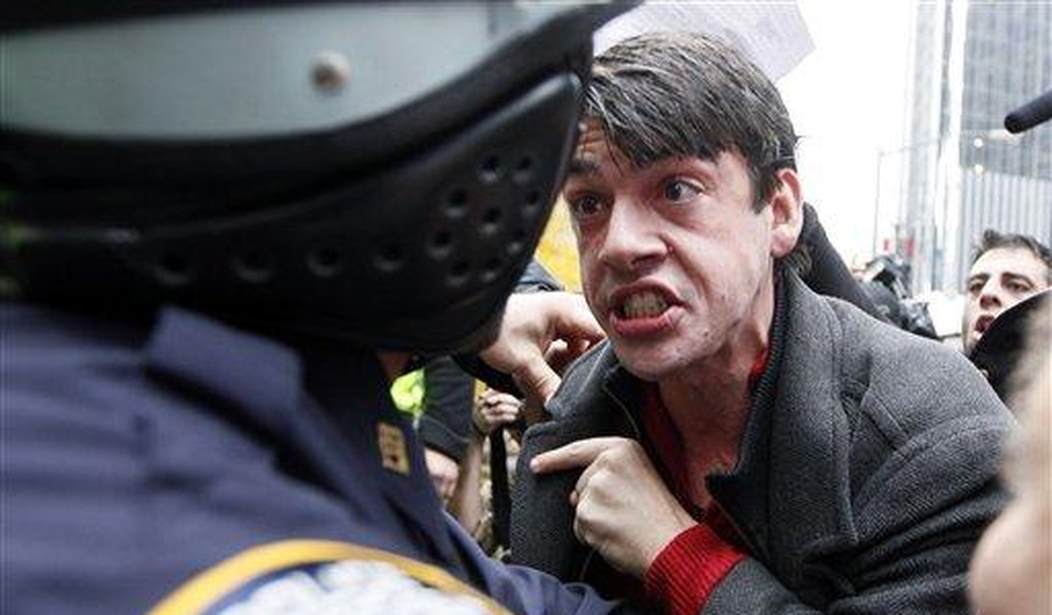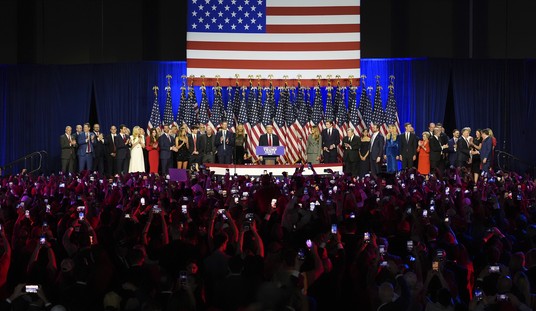How bad are America's partisan divisions? When you consider that the chances of war with Russia or China over the next year or two are pretty darn good, the question becomes a matter of national survival.
Will it ever be possible for Americans to bridge the chasm between them and face a common foe with unity and national purpose?
We like to think that our differences would melt away in a national emergency and bring us together to face whatever challenges came our way. On 9/11, there was a strong sense of bipartisanship symbolized by members of both parties standing on the steps of the Capitol and spontaneously singing "God Bless America."
It was the most powerful patriotic moment of my lifetime and still brings tears to my eyes remembering how I felt at that time.
But that's all it was — a "moment." The two sides were back at each other's throats in a few months.
A few years ago, Reason.com's J.D. Tuccille published a column that posed a serious question: can we ever be unified enough to face a serious challenge?
"We see this very disturbing pattern in which a shock brings people a little bit closer initially, but if polarization is too extreme, eventually the effects of a shared fate are swamped by the existing divisions and people become divided even on the shock issue," Boleslaw Szymanski of Rensselaer Polytechnic Institute told Cornell University interviewers. Szymanski is a co-author of "Polarization and Tipping Points," published in the Proceedings of the National Academy of Sciences.
Szymanski added, "If we reach that point, we cannot unite even in the face of war, climate change, pandemics, or other challenges to the survival of our society."
The authors of the paper wanted to know why the COVID-19 pandemic, rather than bringing Americans closer together to face a national threat, instead pushed us apart even further.
"We found that polarization increases incrementally only up to a point," according to Cornell's Michael Macy, who led the study. "Above this point, there is a sudden change in the very fabric of the institution, like the change from water to steam when the temperature exceeds the boiling point."
The result, according to the study, is "a hard-to-predict critical point beyond which polarization becomes unlikely to reverse."
That doesn't necessarily mean civil war. But a rising tide of political violence is certainly possible.
"Consider, also, the growing segregation in our places of work. The academy increasingly skews to the left, especially so in liberal arts departments and among staff. Cattle ranchers, loggers, dentists, and surgeons skew right," points out the University of Michigan's Scott Page in the same publication.
Such political sorting applies to the military, too, severely limiting its utility in the country's domestic disputes, no matter that some officeholders think that B-52s are the solution to political disagreements. Just two weeks ago, three anti-Trump retired Army generals warned that Americans shouldn't look to troops to suppress escalating political strife.
"The potential for a total breakdown of the chain of command along partisan lines — from the top of the chain to squad level — is significant should another insurrection occur," Paul Eaton, Antonio Taguba, and Steven Anderson wrote in the Washington Post. "Under such a scenario, it is not outlandish to say a military breakdown could lead to civil war."
Perhaps it's "not outlandish" to predict a civil war, just silly. Antifa and Proud Boys squaring off in the streets is hardly the firing on Fort Sumter. But the prospect of other violent groups forming on both sides is real and will grow more likely as long as our leaders on both sides see political advantage in wildly exaggerating the danger of rival candidates.
Donald Trump is not a fascist and is not a threat to democracy. Joe Biden is not a Communist; he's not even a socialist. But the definitions of political labels have been so warped by partisanship that the very meaning of words has been mutilated, not to facilitate communication as language is supposed to do but to engender fear and loathing in the opposition.
When do we know we've gone past the point of no return?
"The process resembles a meltdown in a nuclear reactor," Cornell's Macy said of his tipping point research. "If the temperature goes critical, there is a runaway reaction that cannot be stopped. Our study shows that something very similar can happen in a 'political reactor.'"
The sirens are going off and the lights are blinking red in that "political reactor." It may already be too late to avoid a meltdown.










